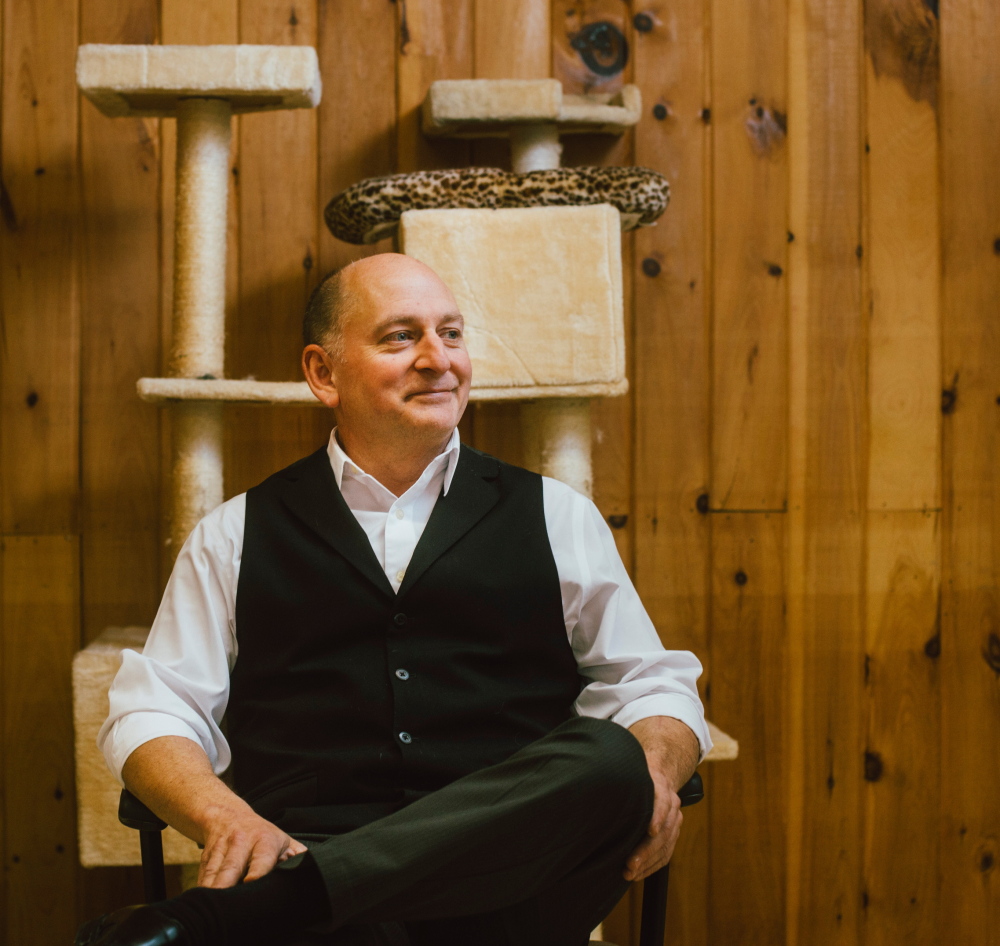Joe Montisano has transitioned from a job where his main role was to keep animals from getting out to one where the primary goal is to move them out.
For the past 11 years, he was the chief executive officer of the Central Florida Zoo in Sanford, Florida, and is now executive director of the Coastal Humane Society in Brunswick.
Montisano has a strong background in caring for animals, first with Sea World in Ohio and then with Wildlife Safari in Oregon, before moving to the Florida zoo.
While in Oregon, he helped local officials set up an animal shelter and said he always hoped to devote more time to shelter work, focusing on getting people to adopt abandoned pets to avoid having to euthanize them.
He also recommends rats and Madagascar Hissing Cockroaches as pets. From personal experience.
Q: What have you learned about Mainers and their animals in the time you’ve been here?
A: Maine is an interesting state for sheltering. Other places have excess animals and have to euthanize them. But because citizens here are so responsible, they take care of their animals, (reducing the numbers that go to shelters.) We actually bring in animals from other states. Most other shelters are dealing with capacity issues and have to make awful decisions (to euthanize). But Maine shelters are in a different situation – they’re not having to euthanize based on capacity. That’s why shelters are doing well.
Q: Why do you think that’s so?
A: It’s due to Maine citizens being responsible pet owners. They get their pets spayed and neutered and when you buy pet food, there’s a tax that goes to a spay and neuter program that helps people who can’t afford it to get their pets spayed and neutered. That really helps with preventing an overpopulation of dogs and cats. We have like a 98 percent live release rate (at the shelter) and that’s certainly not very common. That’s why we’re able to bring animals in from out of state and we’re saving lives. In other places, they have to put down 30 dogs a week or something ridiculous. So it’s certainly unique here – we pull in animals from states like Tennessee, Florida, Georgia and Virginia.
Q: Is your shelter ever full?
A: We have a pretty full shelter now (there are 40 animals) but at certain times of the year it goes down to only a few animals. So it’s not an issue for us to be at capacity. We have our “spring fling” this weekend and we’ve got 12 puppies from Georgia. In other places, it’s different. You can build a new shelter and the day it’s open, you’re at capacity. And it’s a horrible side of this business if you have to make a decision to euthanize a perfectly healthy animal.
Q: How is the shelter doing financially?
A: We’re a nonprofit, so we’re good at losing money. Actually we’re very stable. We have service contracts with a lot of local towns to take animals from animal control officers and also from the public. But our main income is from donations. The majority of the revenue is from adoptions and donations.
Q: What’s your plan for the future?
A: We’re focusing on facility-related things we need to do. But also humane education is important, so kids can understand the relationship between people and animals. I have a son who’s 18 and wants to adopt a dog and he lives in an apartment and I tell him, no, no, that’s not the best thing. And there are problems with people who have pets that are not appropriate – at the zoo, we’d get calls a few times a week about unwanted pets, exotics.
Q: What do you suggest for pets for people in apartments?
A: I recommend rats. They make great pets because they only live about two or three years and don’t need a lot of attention. My kids had pet cockroaches – Madagascar Hissing Cockroaches – and they’re great pets. My daughter had rats and my son had cockroaches. Rats warm up very quickly and are cuddly and kind and smarter than a whip. My daughter really loved them growing up – she had several sets. And rats are quiet. We had guinea pigs and they squeal. They would squeal when you opened the refrigerator – it would curl your hair.
Send questions/comments to the editors.




Comments are no longer available on this story